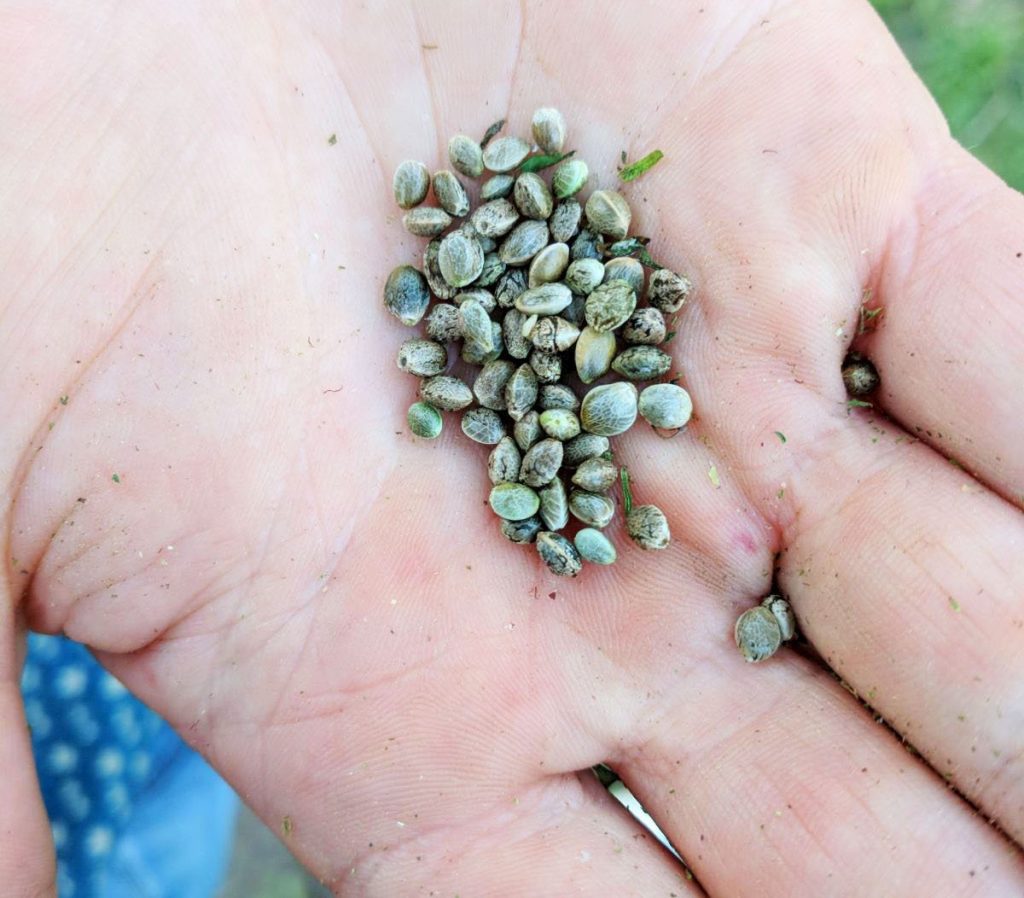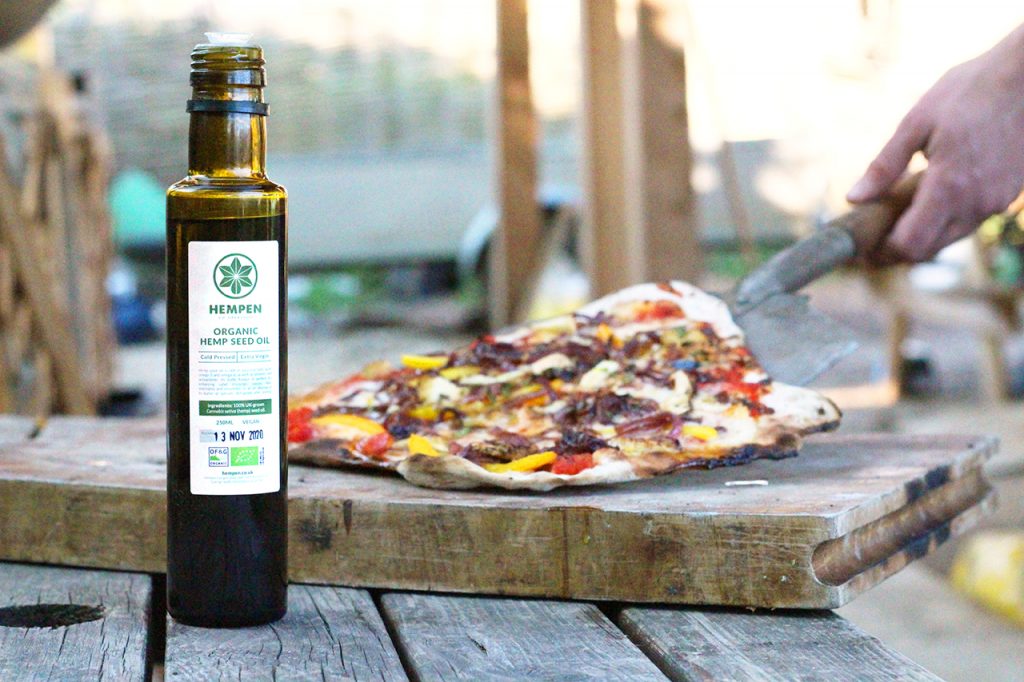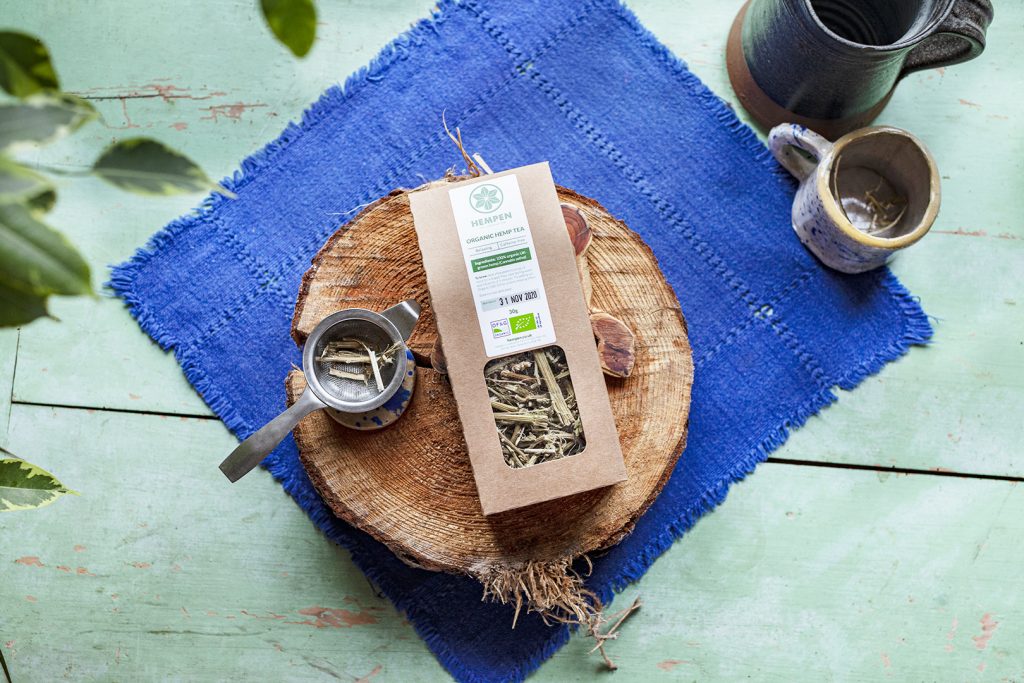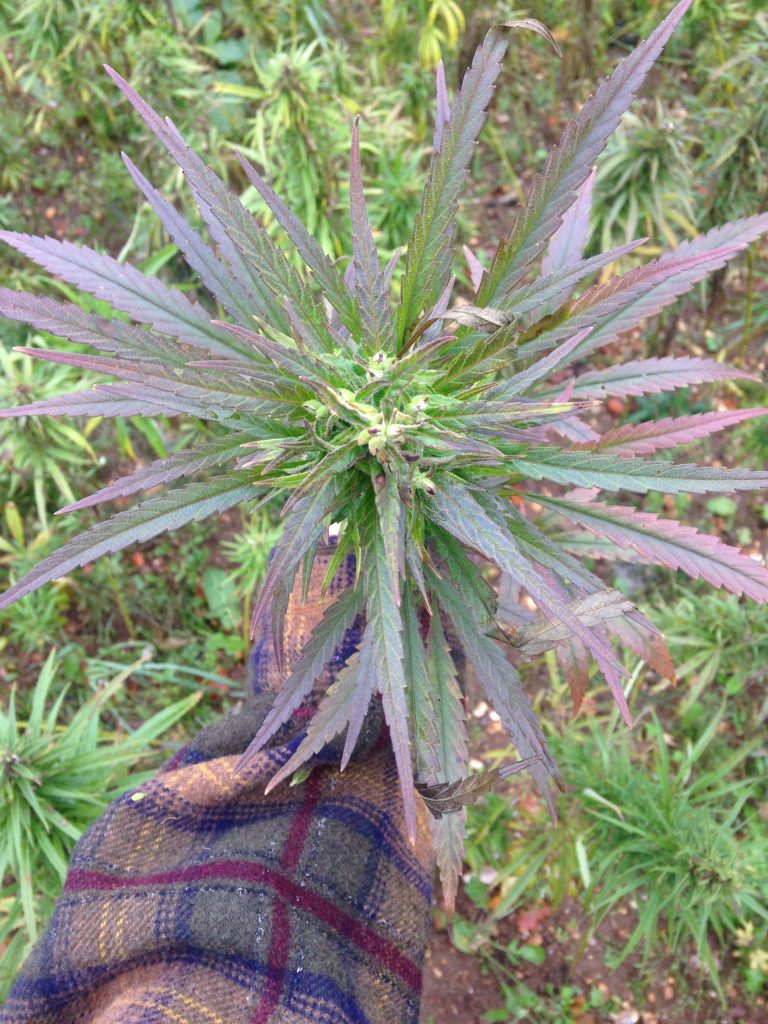The best BBQ Delivery Boxes in the UK from small sustainable British Farms
What is hemp?
Simply put, hemp is a variety of the cannabis plant.
It is a variety that has less than 0.2% of THC – the psychoactive compound in cannabis (the part that gets you ‘high’).
That’s what you need to know in legal terms.
Here’s what you really need to know:
Hemp is edible and incredibly nutritious and – we stress – doesn’t get you high. You can eat the seeds, cold press them into oil, or use the stems to make tea.
The hemp food industry is in the infancy stages, but research suggests it has the potential to replace soya in some areas of the vegetarian food market because it is a ‘complete protein’ (more on that later).
Growing more hemp could potentially help prevent further deforestation because it’s a good alternative to soy and can be grown organically pretty much all over the world (and the climate in the UK is particularly good).
Hemp foods and health benefits

Organic Hemp Seeds
Hemp seeds are one of nature’s superfoods. Unusually for a plant-based food, they contain all nine essential amino acids, making them a ‘complete protein’. This is crucial to a large amount of processes in our bodies, including cell structure, organ and muscle formation and repair, and producing energy. Hemp seeds contain almost as much protein as chicken (22% per 100g compared with 25%).
Also, Hemp seeds contain Omega 3, 6 and 9 in the optimal proportion we need them in our bodies. These fatty acids help build cells and reduce inflammation, as well as having other benefits. Western diets typically don’t contain enough Omega 3 (a deficiency that may contribute to chronic diseases like obesity, diabetes and heart disease) and too much Omega 6 (which can increase inflammation and inflammatory disease).
This combination of protein and fat make hemp seeds an excellent replacement for meat or dairy products.
Plus, hemp seeds are high in fibre and the hemp seed shell is also a rare nutritional source of vitamin D for when the sun isn’t shining.
Finally (for now!), there’s no phytic acid which is common in plant-based foods, such as soya. Phytic acid can be beneficial, but when eaten as part of a meal it can also prevent you from absorbing nutrients such as iron and zinc.

Organic Hemp Seed Oil
£8, 250ml
As well as eaten whole, hemp seeds are also pressed into nutrient-rich oil. Hempen organic hemp seed oil is cold-pressed so it retains the same nutrients as described above. In fact, it contains more Omega 3 and 6 than the fish oil tablets some people take (Omega 3 helps maintain a healthy heart, brain and metabolism, and omega 6 provides energy for the body).
Hemp seed oil is packed with vitamins A, B, C and E, and carotene, an antioxidant and lower in saturated fat than other plant-based oils.
It’s also a great alternative to olive oil, butter and spreads. It has a delicate texture and a distinctive nutty flavour similar to sunflower seeds. Tip: to maintain the nutritious quality, do not use as a “frying” oil or heat above 120°C.

Hemp Stem Tea
£6, 30g
Hemp Stem Tea offers a subtle fragrance and herbal taste, on the chamomile-tea level. It is caffeine-free and naturally contains low levels of CBD, which gives the tea calming qualities. Hemp Stem Tea is made by shredding the stem from the upper parts of the plant. CBD is fat soluble so if you want those benefits it’s better to add milk, or a little coconut oil.
Hemp and CBD
Scientists are beginning to explore the positive effects of one particular compound in hemp, CBD.
Right now, CBD sales are growing incredibly quickly and, as such, the flowers/leaves are the most profitable part of the hemp plant because this is where the CBD comes from. Harvesting the flowers and leaves is illegal in the UK, but it is legal to import and sell CBD harvested from flowers and leaves abroad. (No, it doesn’t make sense, but them’s the rules).
Thanks to it being so profitable, a lot of hemp is grown purely for CBD oil. But, this wastes the rest of the plant because it has so much more to offer – food, as described above, but also…
Hemp as fibre
Hemp has many uses other than food.
For example, it produces the strongest natural fibre in the world and can be used for a massive array of things including textiles, rope, insulation. Hemp fibres are up to 25 times stronger than cotton. Plus, it requires around 90 per cent less water than cotton to grow, and no fertiliser, herbicide or pesticides.
Hemp is used to insulate buildings and can even be turned into Hempcrete – an option for building sustainable, low-carbon building construction.
Hemp as a solution to the climate crisis
Growing hemp is considered by some to help mitigate the climate crisis because it is a bioremediator, meaning it is healing to the natural environment because it draws out heavy metals and toxins from the soil.
It also has deep roots that break hard ground and bring nutrients to the surface helping to restore soil life and store CO2 from the atmosphere in the soil.
What you need to know when buying hemp products
The hemp plant is a bioremediator, meaning it is healing to the natural environment because it draws out heavy metals and toxins from the soil. So, if it is grown industrially with pesticides and herbicides it’s very good at soaking up the toxins – as such, you’re best to opt for organic.
How to buy ethical hemp?
Take a look to see what information is available on a company’s website. Ideally, you’re looking for organic certified products, from ethical companies who support their farmers.
Of course, buying local to support the UK hemp industry and small farms is also a good option.
Hemp and skincare
Hemp oil is also high in vitamin E, making it an anti-ageing treat! It’s also non-comedogenic, so won’t clog your pores – great for eczema as well as oily, spot-prone skin.
This also helps to increase the soil’s ability to retain water, preventing desertification in summer and floods in winter.
Simply put. It’s a wonder plant.

If Hemp is so good, why are we only just discovering this?
We’re not.
Historically, it’s a very important crop. There’s evidence to suggest that hemp was the first plant to ever be cultivated by man and its uses date back 10,000 years (give or take).
It was widespread in the UK until cannabis was made illegal in the 1920s.
It is argued that it was criminalised along with criminalisation of certain peoples; it was made illegal in the British colonies including Mauritius, Jamaica and South Africa before it was made illegal here.
In America, some people refuse to call it “Marijuana” because they say there’s evidence the authorities intentionally co-opted the term to squash various minority groups and anti-war protesters.
This criminalisation had a huge impact on the cultivation of hemp and research into it. As such, it’s an underdeveloped market pretty much growers are having to do everything from scratch.
There’s very little hemp infrastructure in the UK and Europe as you need to pay for a licence to grow it.
The rebirth of Hemp
Thanks to the rise in popularity of CBD – and the legislation for medicinal use – there are calls to legalise the cultivation of Hemp flowers for CBD in the UK.
Of course, it’s not a black and white scientific issue. Politics and business have a big part to play. This is a highly political issue. It’s also one that big pharma companies are dominating, with licenses to grow hemp set to cost hundreds of thousands of pounds. This means that small farmers will be unlikely to be able to afford the licence to grow hemp, and that big business could reap the rewards of legalisation.
Watch this space.
Written in collaboration with Hempen


